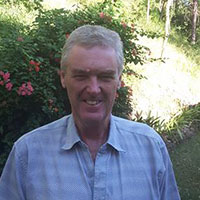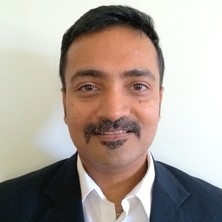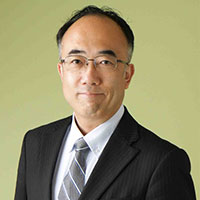Program:
Presentation 1:
- "Welcome to the new world of electronic hypersonic and supersonic propulsion" by Professor Allan Paull, The University of Queensland, Australia
Virtual Facility Tour:
- Associate Professor Anand Veeraragavan, The University of Queensland, Australia
Presentation 2:
- "The Space Flight Experiment of Detonation Engine System Using The Sounding Rocket S-520-31" by Professor Jiro Kasahara, Nagoya University, Japan
Timed Program:
| start time in AEST | running time (start - finish) | ||
| Wed 08 Dec 13:00 | 0:00 - 0:10 | Opening remarks | |
| Wed 08 Dec 13:10 | 0:10 - 1:15 | Talk 1: Welcome to the new world of electronic hypersonic and supersonic propulsion | Professor Allan Paull |
| Wed 08 Dec 14:15 | 1:15 - 1:55 | Virtual UQ facility tour | Associate Professor Anand Veeraragavan |
| Wed 08 Dec 14:55 | 1:55 - 3:00 | Talk 2: The Space Flight Experiment of Detonation Engine System Using The Sounding Rocket S-520-31 | Professor Jiro Kasahara |
About the Presenters:
Professor Allan Paull
 Professor Allan Paull gained his PhD in applied mathematics at the University of Queensland (UQ) and subsequently obtained a MEngSc within the Dept. of Mechanical Engineering at UQ. He has worked for 34 years in hypersonics, primarily in the field of supersonic combustion and flight testing.
Professor Allan Paull gained his PhD in applied mathematics at the University of Queensland (UQ) and subsequently obtained a MEngSc within the Dept. of Mechanical Engineering at UQ. He has worked for 34 years in hypersonics, primarily in the field of supersonic combustion and flight testing.
He was initially employed at UQ as a research assistant on a three month non-extendable contract to Ray Stalker. 20 years later he held the position of ARC Professorial Research Fellow, still working with Ray at UQ.
Whilst at UQ he developed and led the HyShot flight program to establish the correlation between flight and shock tunnel measurements of supersonic combustion. HyShot led to the DARPA sponsored HyCAUSE program which led to the AFRL/DST HIFiRE flight program. In total, he has been the lead for 14 hypersonic flight tests. During the HIFiRE program he was employed at the Defence Science and Technology Group and remained an Adjunct Professor to UQ until 2019, when he rejoined UQ again in the position of DST Chair in Future Hypersonic Technologies where he now concentrates on advanced concepts.
He is also the Technical Lead to the Australian Program Office for Advanced Hypersonics and the Technical Advisor to the UQ flight program called STAje-.
Associate Professor Anand Veeraragavan
A/Prof. Anand Veeraragavan's research interests are in supersonic  combustion of hydrocarbons, hypersonic aerothermodynamics, advanced optical diagnostics for hypersonic flows and microcombustion based portable power.
combustion of hydrocarbons, hypersonic aerothermodynamics, advanced optical diagnostics for hypersonic flows and microcombustion based portable power.
He is currently undertaking world-leading research in the field of hypersonics and supersonic combustion sponsored by Australian DST, U.S. Air Force Office of Scientific Research (AFOSR) and U.S. Asian Office of Aerospace Research and Development (AOARD). This includes leading the Australian effort in prestigious projects such as ground testing and simulations in support of the Boundary Layer Transition/Turbulence (BOLT II) flight test.
A/Prof. Anand Veeraragavan joined UQ’s School of Mechanical and Mining Engineering as a lecturer in 2012. Anand graduated with a B.Tech in aerospace engineering from the Indian Institute of Technology Madras (IIT-Madras) in 2002. He obtained his MS (2006) and PhD (2009) degrees in aerospace engineering from the University of Maryland.
Professor Jiro Kasahara
 Professor Jiro Kasahara is a professor of Institute of Materials and Systems for Sustainability, Nagoya University, Japan from 2019. He received PhD from the Graduate School of Engineering, Nagoya University at 1997.
Professor Jiro Kasahara is a professor of Institute of Materials and Systems for Sustainability, Nagoya University, Japan from 2019. He received PhD from the Graduate School of Engineering, Nagoya University at 1997.
From 1997 to 1999, he was a JSPS research fellow (PD) at Nagoya University. From 1999 to 2003, he was a research associate of Muroran Institute of Technology, Department of Mechanical System Engineering. From 2003 to 2007, he was a lecturer at the University of Tsukuba, Department of Engineering Mechanics and Energy, and from 2007 to 2013, an associate professor of University of Tsukuba. From 2013 to 2019, He was a professor of Nagoya University, Department of Aerospace Engineering, before taking his current position. He specializes in detonation and detonation engine system.
About International Colloquium on Shock Waves (ICSW)
The ICSW consists of three separate plenary events between 6 and10 December 2021. These events have been scheduled at different times of the day such that at least two sessions should occur at convenient times for participants in all parts of the world.
Each session is three hours in duration and includes two plenary presentations from research leaders in the shock waves community. Session 2 will include a virtual facility tour of the hypersonic wind tunnel facilities at The University of Queensland, and Session 3 will include an awards ceremony from the International Shock Wave Institute (ISWI).
The timing of the three sessions can be seen below, along with links to the pages for each separate plenary event. Please register for the sessions which you are interested in attending so that you can add them to your calendar and receive reminders closer to the date.
All sessions will occur on Zoom and are free of charge. Prior registration on Zoom is recommended to receive updates and to avoid missing out if sessions reach capacity.
The ICSW website link can be found here.
| Session 1 Start | Session 1 Finish | Session 2 Start | Session 2 Finish | Session 3 Start | Session 3 Finish | |
| Brisbane (AEST, UTC+10) | Tue 07 Dec 05:00 | Tue 07 Dec 08:00 | Wed 08 Dec 13:00 | Wed 08 Dec 16:00 | Fri 10 Dec 22:00 | Sat 11 Dec 01:00 |
| Sydney (AEDT, UTC+11) | Tue 07 Dec 06:00 | Tue 07 Dec 09:00 | Wed 08 Dec 14:00 | Wed 08 Dec 17:00 | Fri 10 Dec 23:00 | Sat 11 Dec 02:00 |
| Tokyo and Seoul (JST and KST, UTC +9) | Tue 07 Dec 04:00 | Tue 07 Dec 07:00 | Wed 08 Dec 12:00 | Wed 08 Dec 15:00 | Fri 10 Dec 21:00 | Sat 11 Dec 00:00 |
| Beijing and Singapore (CST and SGT, UTC+8) | Tue 07 Dec 03:00 | Tue 07 Dec 06:00 | Wed 08 Dec 11:00 | Wed 08 Dec 14:00 | Fri 10 Dec 20:00 | Fri 10 Dec 23:00 |
| New Delhi (IST, UTC + 5:30) | Tue 07 Dec 00:30 | Tue 07 Dec 03:30 | Wed 08 Dec 08:30 | Wed 08 Dec 11:30 | Fri 10 Dec 17:30 | Fri 10 Dec 20:30 |
| Moscow (MSK, UTC +3) | Mon 06 Dec 22:00 | Tue 07 Dec 01:00 | Wed 08 Dec 06:00 | Wed 08 Dec 09:00 | Fri 10 Dec 15:00 | Fri 10 Dec 18:00 |
| Johannesburg (SAST, UTC +2) | Mon 06 Dec 21:00 | Tue 07 Dec 00:00 | Wed 08 Dec 05:00 | Wed 08 Dec 08:00 | Fri 10 Dec 14:00 | Fri 10 Dec 17:00 |
| Paris, Berlin and Oslo (CET, UTC+1) | Mon 06 Dec 20:00 | Mon 06 Dec 23:00 | Wed 08 Dec 04:00 | Wed 08 Dec 07:00 | Fri 10 Dec 13:00 | Fri 10 Dec 16:00 |
| London (GMT, UTC +0) | Mon 06 Dec 19:00 | Mon 06 Dec 22:00 | Wed 08 Dec 03:00 | Wed 08 Dec 06:00 | Fri 10 Dec 12:00 | Fri 10 Dec 15:00 |
| New York (EST, UTC-5) | Mon 06 Dec 14:00 | Mon 06 Dec 17:00 | Tue 07 Dec 22:00 | Wed 08 Dec 01:00 | Fri 10 Dec 07:00 | Fri 10 Dec 10:00 |
| Dallas (CST, UTC-6) | Mon 06 Dec 13:00 | Mon 06 Dec 16:00 | Tue 07 Dec 21:00 | Wed 08 Dec 00:00 | Fri 10 Dec 06:00 | Fri 10 Dec 09:00 |
| Los Angeles (PST, UTC-8) | Mon 06 Dec 11:00 | Mon 06 Dec 14:00 | Tue 07 Dec 19:00 | Tue 07 Dec 22:00 | Fri 10 Dec 04:00 | Fri 10 Dec 07:00 |
